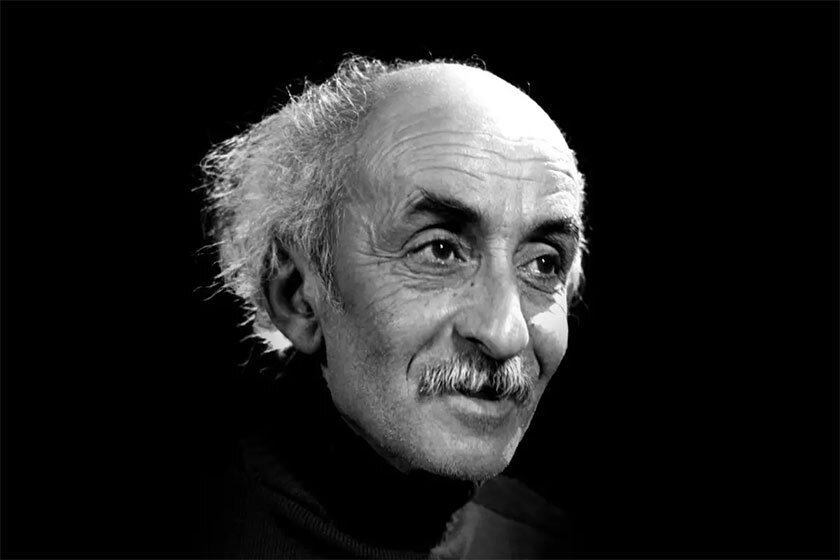Nima Yushij and modernizing Persian poetry

TEHRAN – On the commemoration of Nima Yushij's birthday, it is essential to acknowledge his pivotal role in modernizing Persian poetry. Born on November 11, 1895, Yushij, is often referred to as the "Father of Modern Persian Poetry."
He fearlessly broke away from the traditional confines of classical poetry, ushering in a new era of literary innovation and artistic freedom. His audacious reimagining of poetic form and subject matter challenged the conventions of his time, paving the way for a new era of literary expression.
In a time when Persian poetry was steeped in strict, centuries-old conventions, Nima Yushij emerged as a trailblazer, challenging the norms with his groundbreaking ideas and experimental style. Embracing the spirit of social transformation and the need for cultural reform, his poetry embodied the fervor and aspirations of a generation hungry for change.
His poetic journey began at an early age when he became enchanted with the power of words and their ability to paint vivid pictures and evoke deep emotions.
Yushij's first poem was the long epic poem "The Pale Story." He later wrote "Afsaneh" (Myth) which is considered the cornerstone of modern Persian poetry. This composition, with its raw emotions, daring themes, and revolutionary language, defied the traditional structures and elevated Persian poetry to uncharted territories. Its success not only solidified Yushij's reputation as a visionary poet but also inspired countless others to follow in his footsteps.
Additionally, Yushij's poetry expressed his deep connections with nature, reflecting the voice of a generation grappling with the complexities of the modern world. His evocative imagery and vivid metaphors breathed new life into Persian poetry, captivating audiences and resonating with the emotions and experiences of his contemporaries.
Nima Yushij's impact on Persian poetry extended far beyond his own compelling verses. He founded the "New Poetry" movement, encouraging budding poets to explore novel themes, experiment with forms, and embrace innovation. His relentless pursuit of change and artistic freedom opened the floodgates for a wave of diverse voices and perspectives in Iranian literature.
This movement marked a significant departure from classical poetry, embracing a more experimental and modern approach. He advocated for Persian poetry to find its own unique voice, rooted in Iran's rich cultural heritage but unafraid to explore new paths and ideas.
Yushij's poetry was not just a form of self-expression; it acted as a powerful instrument for social change and a reflection of the turmoil Iran was experiencing during the early 20th century.
He merged ancient Persian poetry with world poetry, thus restoring the prominence of Persian poetry in the global poetic family. His poetry aimed to hand over as much as he could of the field to music and speech, while abandoning the meticulous rhyme schemes of ancient prosody.
The themes in Nima Yushij's poetry were diverse and nuanced, encompassing everything from love and nature to social justice and political upheavals. His words resonated deeply with the Iranian people, capturing the essence of their struggles, dreams, and aspirations. Through his poetry, he provided solace, hope, and a profound understanding of the human experience.
Yushij heavily influenced by French Symbolist poets and was the first Iranian poet to introduce a Western-style free verse. He placed his own "Blank Verse" style against the modernist idea of French poet Arthur Rimbaud, who was an advocate of rhyme and meter, and in harmony with the revolutionary thoughts of Rimbaud, who demanded complete freedom of poetry, to present his own styles.
Nima corrected Iranians' literary taste and expanded the circle of Iranians' colloquial language skills by using local words. He abolished banal and repetitive phrases and idioms, attaining proficiency in expressing modern human emotions, anxieties, and restlessness, previously unattainable through traditional Persian poetry.
Recognized as one of the greats of Persian folk poetry, Yushij's literary genius persists even today. His unique approach to poetry and language continues to influence modern Persian poets and scholars in their pursuit of literary excellence.
Nima Yushij's impact on Persian literature cannot be overstated. His innovative use of language, rhythm, and imagery ignited a literary revolution, inspiring countless poets and writers to embrace their individual voices and challenge societal norms. His powerful and thought-provoking poetry continues to be studied and revered, offering timeless lessons and profound insights into the human condition.
SAB/
